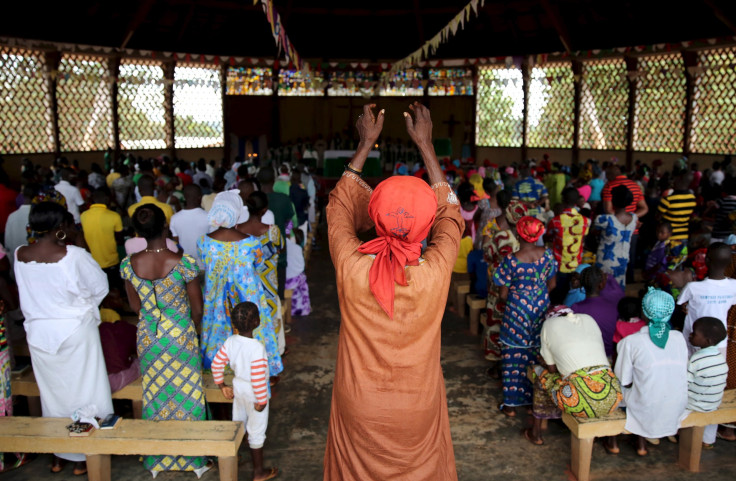Pope Africa Visit 2015: Francis Aims To Heal Christian-Muslim Divide, Stem Violence In Central African Republic

After visiting Kenya and Uganda, Pope Francis is scheduled to arrive Sunday in Central African Republic, where he aims to heal the Christian-Muslim divide and stem violence. Francis plans to meet with religious leaders on both sides of the ongoing conflict. But there’s speculation over what the Holy See can achieve within his short visit to the war-torn country.
Mainly Muslim rebel fighters overthrew Central African Republic’s government in 2013, which sparked revenge attacks by Christian militias that are still ongoing. The raging civil war has left a security vacuum and has forced about 400,000 people to flee their homes, with another 460,000 to seeking shelter in neighboring countries, according to the United Nations refugee agency. Dozens of people have been killed in violent clashes since September. U.N. investigators have said there’s evidence of war crimes and crimes against humanity on both sides of the conflict.
France currently has 900 soldiers in Central African Republic, supporting the U.N. mission, which has 11,000 soldiers in total. The United Nations said it plans to deploy an additional 300 peacekeepers to the Christian-majority country ahead of the pope's visit and the December elections, according to Reuters.
It will be the pope’s first visit to an active war zone. French officials have suggested the Vatican consider scrapping the third leg of the trip to Africa. But when Reuters asked Wednesday if he was nervous about visiting Bangui, Francis dismissed the concerns with a joke: "To tell you the truth, the only thing I'm concerned about is the mosquitoes. Did you bring your spray?"

During his 26-hour visit to Central African Republic, where Muslims account for about 15 percent of the population, the pontiff is due to visit a cathedral as well as a mosque in one of the most dangerous districts of the capital Bangui. Francis also plans to meet refugees, youths and members of the local Christian and Muslim communities. However, some argued the pope should have planned a joint visit with a Muslim leader to show solidarity and bridge fault lines between the two religions.
“It is a pity that Francis does not have a Muslim counterpart who could partner him on his missions of peace and reconciliation among religions,” Peter Fabricius, a security consultant at the South Africa-based Institute for Security Studies, told the Guardian Monday. “Nevertheless, by his highly active and increasingly visible political interventions around the world in the name of peace, reconciliation and mercy, Pope Francis may just still be inspiring and emboldening the leaders of other religions to follow his example.”
Archbishop Franco Coppola, the pope’s ambassador to Central African Republic, said Francis might be met with some resistance and opposition in Bangui. Still, Coppola was optimistic the pope’s reconciling message will have a positive impact and help the country move forward. Roughly 28 percent of Central African Republic's population is Catholic.
“It’s the Muslim community as a whole which Pope Francis is intent on meeting… It will provide the opportunity to reiterate loud and clear the Catholic Church’s respect for Muslims and of our commitment to interreligious dialogue,” Coppola told TIME via email Tuesday. “It will be a very important sign for all Central Africans to see the Pope going to the heart of the Muslim district.”
© Copyright IBTimes 2024. All rights reserved.





















